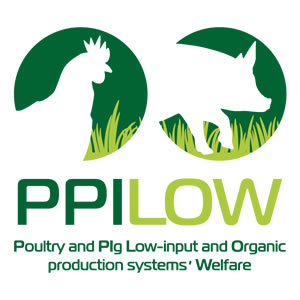PPILOW’s People: Henry van den Brand!
 My part of the PPILOW project still has to start. I am thrilled to start in Spring 2022 with incubation experiments, in which we will incubate eggs of very slow growing broiler chickens in different ways. We will increase or decrease the incubation temperature during 12 hours per day in the most sensitive period of incubation. The expectation is that with this “thermal programming”, we prepare the chicken better for later life challenges, which can occur for example when the chicken is housed outdoor. In a first experiment, we will only look to effects of this thermal programming on chicken quality at hatch and in a next experiment, we will rear the chickens outdoor at the ILVO in Belgium. This project fits well within the mission of Wageningen University: to explore the potential of nature to improve the quality of life. With a team of researchers, technicians and PhD students, we are working on this mission. As a teacher and researcher, I am working already 20 years on incubation of eggs and it is still fascinating to try to understand how a chicken embryo of 40000 cells at the start of incubation develops in a full-grown hatchling in only 21 days. It is also exciting to know that in that 21 days the quality of the chicken and later life health and welfare are determined. However, it is still largely unknown which physiological processes are involved and how these can be affected by adjusting environmental factors. In other words, there is still a lot to do and the PPILOW project will absolutely bring us a step further.
My part of the PPILOW project still has to start. I am thrilled to start in Spring 2022 with incubation experiments, in which we will incubate eggs of very slow growing broiler chickens in different ways. We will increase or decrease the incubation temperature during 12 hours per day in the most sensitive period of incubation. The expectation is that with this “thermal programming”, we prepare the chicken better for later life challenges, which can occur for example when the chicken is housed outdoor. In a first experiment, we will only look to effects of this thermal programming on chicken quality at hatch and in a next experiment, we will rear the chickens outdoor at the ILVO in Belgium. This project fits well within the mission of Wageningen University: to explore the potential of nature to improve the quality of life. With a team of researchers, technicians and PhD students, we are working on this mission. As a teacher and researcher, I am working already 20 years on incubation of eggs and it is still fascinating to try to understand how a chicken embryo of 40000 cells at the start of incubation develops in a full-grown hatchling in only 21 days. It is also exciting to know that in that 21 days the quality of the chicken and later life health and welfare are determined. However, it is still largely unknown which physiological processes are involved and how these can be affected by adjusting environmental factors. In other words, there is still a lot to do and the PPILOW project will absolutely bring us a step further.

